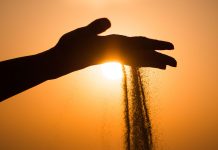Equivocation: Playing hide-and-seek in communication
When what someone says can be interpreted in multiple ways, we are in danger of coming to an understanding which is different to their intended message.
Happiness is built
I remember a question I was asked a long time ago that puzzled me more than other really difficult ones. I had to describe a happy day and, rummaging through my bag of happy, interesting or downright glorious days, it wasn't very clear to me what criteria I should use to choose one.
The allure of uncertainty
On June 23, 1863, in France, a book was published that would become the literary sensation of the century. Few could have foreseen the impact it would make. This was not a romance novel, thriller, or self-help guide; it was Vie de Jésus (The Life of Jesus) by Ernest Renan. In less than four months, over 60,000 copies were circulating—a record-breaking success in...
The Ten Commandments
The book of Exodus is the second book in the Bible. It follows God’s servant Moses leading the Israelites out of slavery and through the desert towards the hoped-for Promised Land. Along the way, they stop at Mt Sinai. Moses goes up the mountain and receives from God ten commandments carved on a stone tablet. This is one of the most famous sections...
Actors in a divine plan
At the appointed time in the plan of salvation, Christ was sent to us: "When the set time had fully come, God sent His Son, born of a woman, born under the law..." (Galatians 4:4).
When all direction is gone | How to survive adultery
Henri Nouwen once wrote about some trapeze artists who became his friends, emphasising the perfect synchronicity between them and the total trust that the one who jumps has when he lets go of the trapeze and remains in the air for a second, waiting to be caught by his teammate. But what if, at the last moment, when it is too late to...
Grateful—even for lemons
Things happen anyway, whether good or bad. Why put extra effort into trying to respond positively when certain things happen? Why be grateful?
Violence: an exploration of its origins, perpetuation, and eradication
In the US, the shocking news of Charles Manson's death marked the end of a disturbing chapter in history.
Tangible happiness
It's intuitively inappropriate to talk about happiness when the subject is depression. But it is even more inappropriate to talk about abnormality, inadequacy or maladjustment in the same context.
Four women. One bike. 4000km for life.
If you had to guess, how many Australians would you say die from suicide every day? A handful, maybe three or four? Try nine. On average, seven Australian men and two women pass away every single day through suicide. That’s 63 each week, or 252 each month. In 2022 alone, 3,249 Australians died by suicide. In New Zealand during the same year, 538...
Deal with the devil
Among the many perplexing phenomena the internet offers, recent public statements by certain American artists stand out. These individuals, popular in various circles, openly admit to having made a deal with the devil—selling their souls and becoming his servants in exchange for career success, wealth, and fame.
Do you know your child’s love language?
In 1997, Dr Gary Chapman released the book "The 5 Love Languages of Children" as a follow-up to his bestseller, "The Five Love Languages."
What about the failures that haunt us?
A smooth sea never gave a skilled sailor, said Franklin D. Roosevelt, suggesting that without hardship, challenges and even failures, we cannot become our best selves.
How well are you protected against scammers?
Most of us want to trust. We assume that others possess our own level of honesty and goodwill. Sadly, this is neither a sensible nor a safe attitude anymore.
The Church, a (lost) point of reference
Founded on the separation of political and religious authority and shaped by the presumed liberating power of reason, contemporary society is driven by faith in progress as a substitute for faith in God. At the heart of this secularized world, a pressing question emerges: what role does the Church still play today?


























